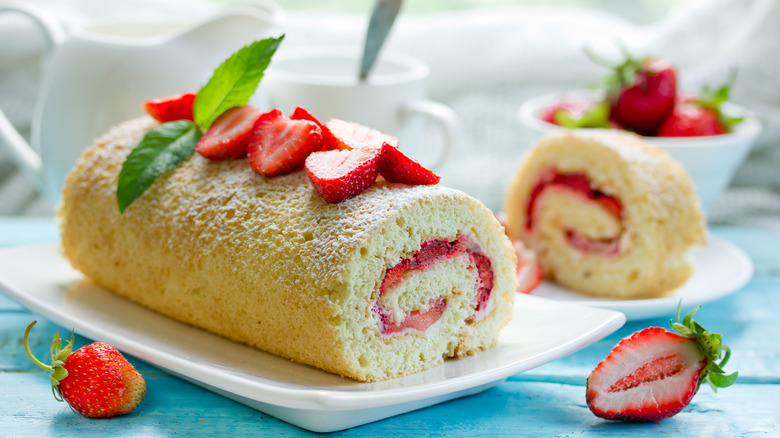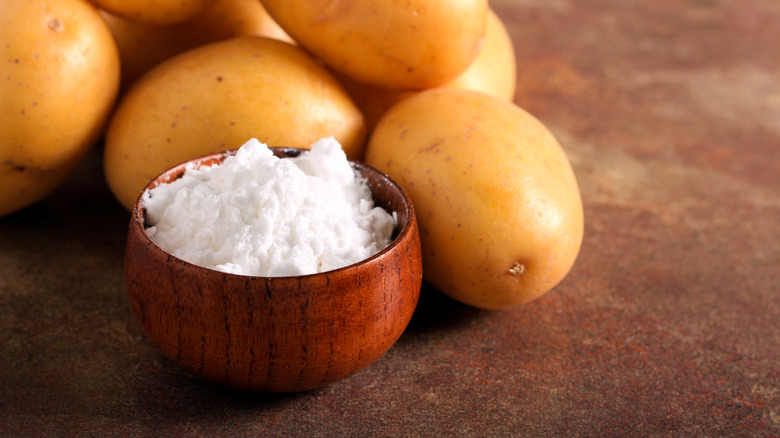The Flour Mix That Will Deliver A Cloud-Like Swiss Roll
On your mark, get set, bake! The "Great British Baking Show" has made British baked goods mainstream throughout the United States, popularizing the likes of Victoria sponges, Chelsea buns, and dense puddings. According to the BBC, Americans have gravitated toward the show for its comfort factor — and perhaps no dessert better encapsulates the British spirit than the Swiss roll.
Dubbed "jelly rolls" in the U.S., Swiss rolls are a quintessential British dessert that rolls jam between spongy, vanilla cake (per MasterClass). The most traditional versions of the dessert utilize strawberry or raspberry jam, though more creative, contemporary concoctions swap in all kinds of frostings, creams, and fillings. The hallmark of a neat Swiss roll comes down to its design — cutting into your dessert should reveal a neat spiral of that aforementioned filling.
You can easily find variations of Swiss rolls at grocery stores and bakeries. To snack on something simple, opt for miniature, chocolate-coated versions of the treat — they're a Little Debbie bestseller for a reason. Yet to truly savor your favorite flavors and take on the challenge of perfecting that Swiss roll spiral, it's time to get baking.
The secret to perfecting a fluffy Swiss roll isn't in the filling or even the oven. Rather, it all comes down to the flour.
A mix of plain and potato flour ensures a fluffy, light Swiss roll
Your choice of flour will influence the texture of your Swiss roll. According to The Guardian, British flours are pretty soft. Yet to up their softness, borrow the Swiss roll strategy of British department store Fortnum & Mason. The store's Swiss rolls, per The Guardian, call for a combination of regular flour and potato flour — a seemingly unconventional pairing for sweet treats.
This combination, however, works wonders. Potato flour is made from whole potatoes and therefore varies from potato starch. Incorporating it into your baking pays homage to Scandinavian roll cakes and ultimately yields an ultra-soft and airy texture. Pick up a package of Fortnum & Mason's white chocolate and lemon curd Swiss rolls to taste this texture in action. You'll get the fluffy, potato-starch consistency without any of the grunt work.
If potato flour still sounds a little too strange, The Guardian suggests switching to sponge or cake flour — both of which are low in gluten. MasterClass backs up the low-gluten suggestion, noting that low-gluten flours yield the most tender results. Before you try for maximum delicacy, however, beware: An ultra-soft sponge runs the risk of a flimsy spiral.

